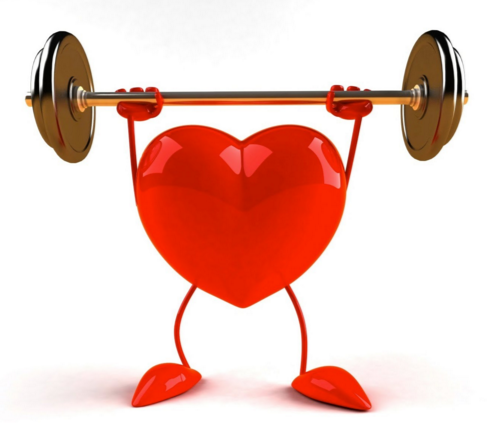7 things you need to manage to live free of heart disease
02/08/2016 / By Michael Bundrant

Despite years of public health efforts to curb this epidemic, the statistics remain alarming: heart disease is still the #1 killer in the nation, claiming 610,00 lives each year–approximately one in four deaths.
In the United States, someone has a heart attack every 34 seconds. Every 60 seconds, someone in the United States dies from a heart disease-related event. And related costs soar above $100 billion each year!
Heart disease is a category of disorders involving the heart and blood vessels. Although it includes stroke and coronary heart disease (CHD), most people think of the latter when talking about heart disease.
CHD develops over time, with a narrowing or blockage of heart blood vessels cause by a build-up of plaque (fat and cholesterol). Think of muck gradually accumulating inside a hose, and eventually bursting and blocking the flow of water.
This is what happens to arteries leading to the heart—eventually they don’t allow enough oxygen-rich blood to nourish the vital organ. The result can be a heart attack.
Are you at risk?
Scientists have put together a list of risk factors for heart disease. Some of these you cannot modify–for example, a family history of early heart disease, or your age (men >45, women >55).
But according to the National Heart, Lung, and Blood Institute, others are within your control, including:
• High blood pressure and cholesterol
• Diabetes and prediabetes
• Unhealthy diet
• Being overweight or obese
• Being physically inactive
• Smoking

Life’s Simple 7
Taking these factors into account, the American Heart Association has put together a list of seven actions to control the chance of developing heart disease.
Although these lifestyle goals will go a long way in helping you live a healthy life, researchers have found that less than 6% of Americans are following all the recommendations, a number lower than 20 years ago.
Life’s Simple 7 include:
1. Manage blood pressure, a major risk factor for heart disease and stroke.
2. Control cholesterol, which contributes to clogged arteries.
3. Get active to increase your length and quality of life.
4. Stop smoking, which increases your risk of heart disease.
5. Lose weight to better control blood pressure and diabetes, and put less stress on blood vessels, lungs and heart.
6. Improve your diet to support a healthy body.
7. Reduce blood sugar, which can support your heart health.
Tame the flame!
Many of these actions will also help on the most recent battlefront in the fight against chronic diseases (including those of the heart)–inflammation.
Inflammation is a normal immune response to injury. When the body senses an intruder, it sends out cells to attack, causing an inflammation that subsides when the danger is over.
But sometimes the inflammation becomes chronic, and that’s when the damage begins. Inflammation is now implicated in cancer, heart disease, diabetes and dementia. In the case of heart disease, chronic inflammation seems to start the artery-hardening process, leading to blockages, ruptured plaque formation and heart attacks.
The best advice currently to keep chronic inflammation at bay is to exercise, minimize added sugar intake, maximize intake of fruits, vegetables, healthy fats and whole grains, avoid cigarette smoking and control your weight.
Submit a correction >>
Tagged Under:
diet, healthy food, healthy habits, heart disease, nutrition, obsesity, overweight, smoking, weight loss
This article may contain statements that reflect the opinion of the author





















